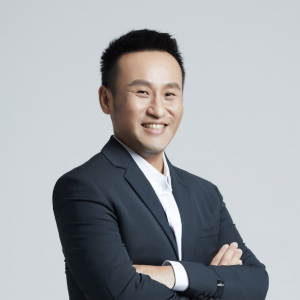These days, I frequently have to field a question that relates to me both as an investor and a parent: how will AI change education?
Have you noticed your kids aren’t working so long on homework as they used to be? They very likely are using generative AI as their “little helper”, with tools like ChatGPT capable of generating a 1,000-word report in less than a minute.
So it’s no surprise that in the beginning, generative AI technology quickly received big pushback from teachers and parents. But in the months since then, the discussion has already shifted from “how to ban students from using AI” to “how can AI enhance learning”.
So my answer to the above question is; the biggest change AI will bring to education is to usher in an age of individualized learning.
As CEO of OpenAI – the developer of ChatGPT, Sam Altman recently said in an interview about the potential use cases of generative AI: “One of the ones that I’m most excited about is the ability to provide individual learning — great individual learning for each student.” Bill Gates also sees the concept’s potential, investing over $240 million through the Bill and Melinda Gates Foundation in individualized education.
As of now, the world’s largest online course platform, Coursera and non-profit education organization Khan Academy (100 million global users) have already rolled out AI teaching assistants that provide students one-on-one guidance.
AI kicks off the era of individualized learning
What does working with one of these AI teaching assistants look like?
One thing that they can do is guide the student’s thought process. For example, if a student is stuck on a math problem, the assistant does not give the direct answer but rather prompts the student to remember some basic rules of arithmetic (e.g., multiply and divide before adding and subtracting) and then apply those rules to the problem. This helps to gradually guide the student to the answer.
The AI can also take on the role of experts or famous people when talking to students: a student interested in science can directly ask Einstein how he came up with the theory of relativity. Those who want to know more about ancient Greece can talk to Plato. Students can also talk to living experts such as Jeff Bezos and Elon Musk about their business decisions (with all responses based on pre-existing information, of course). There are even voice-enabled versions of this AI where students can “phone call” these people directly.
And even more importantly, AI teaching assistants can engage in debate with students and question their answers, helping them to discover their own blind spots, enhance their reasoning ability, and strengthen their arguments.
Use Q&A to train expression and thinking skills
The question and answer approach to learning originated with Socrates 2,300 years ago. The objective was to persistently ask questions so that the student would discover the contradictions within their own arguments. By continuously revising and analyzing their own arguments, the student forms their own perspective, which is the basis of critical thinking.
However, in today’s education world, it is difficult for a teacher to use this approach in a class with dozens of students. AI assistants can help even schools with larger student populations to experience individualized learning. And they can use their “memory” of interactions with specific students to create customized learning plans and guidance for each student, in essence providing them each with their own personal Socrates.
AI assistants that can engage students in the Socratic Method could be especially helpful in Asian schools where students are most accustomed to the passive absorption of information – this could also get quiet students to be more confident in sharing their ideas.
Returning to the original intent of education
Einstein once said that the most important job of schools was not to teach students specific fields of knowledge, but to nurture independent thinking, which is vital to being able to adapt to change. When we figure out how to use AI in schools, the best change might not be creating new learning methods so much as reminding us of the original intent of education.

